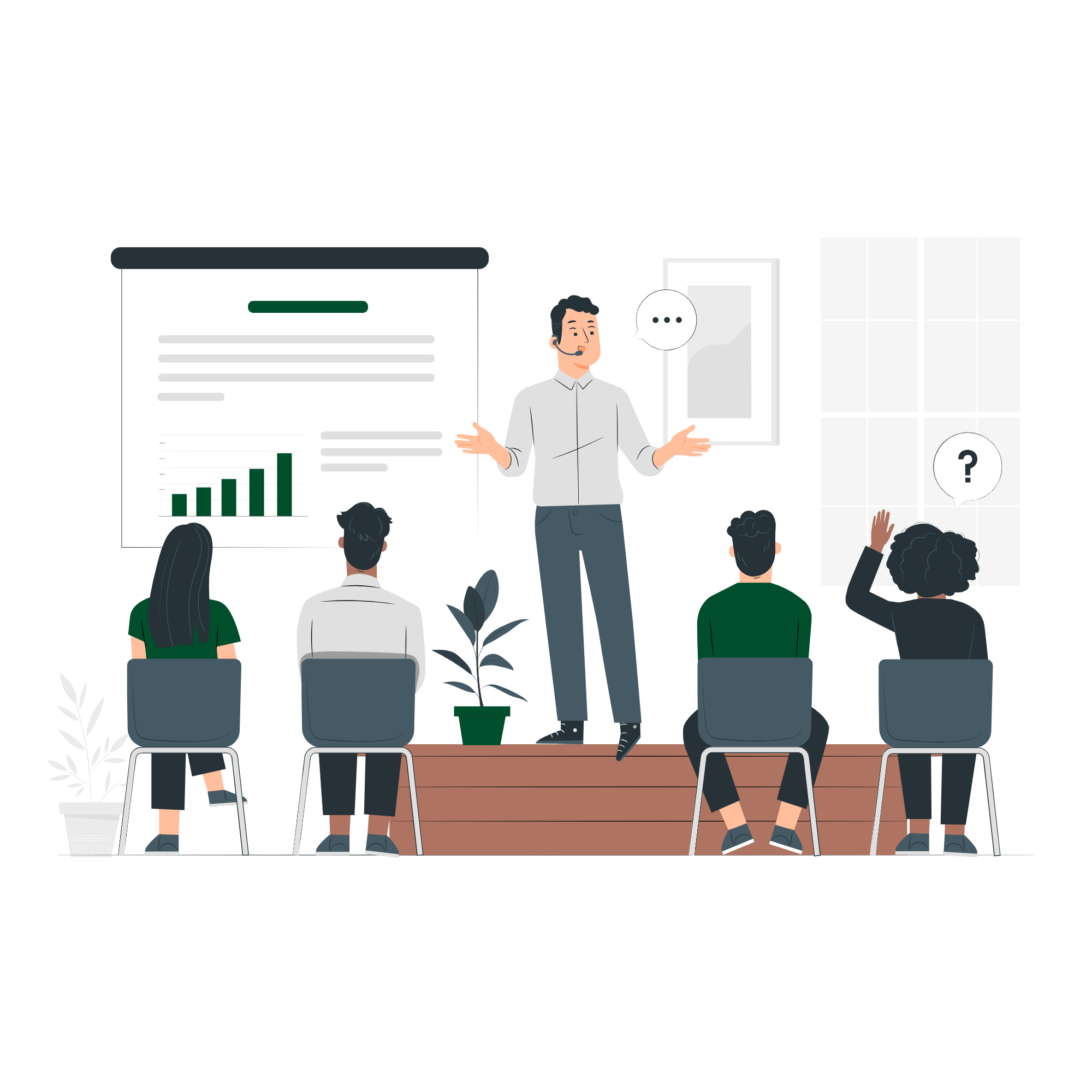 Inclusion of digital literacy into the curriculum of schools. NITDA is working with the Federal Ministry of Education to ensure that every Nigerian student graduates with 21st-century digital skills, from primary to tertiary institutions.
Inclusion of digital literacy into the curriculum of schools. NITDA is working with the Federal Ministry of Education to ensure that every Nigerian student graduates with 21st-century digital skills, from primary to tertiary institutions. Digital literacy training and certification for the workforce. We’re partnering with public sector leaders and industry experts to equip the workforce with the skills needed for Nigeria’s digital transformation. This program will lead to a professional digital literacy certification, enabling global job mobility.
Digital literacy training and certification for the workforce. We’re partnering with public sector leaders and industry experts to equip the workforce with the skills needed for Nigeria’s digital transformation. This program will lead to a professional digital literacy certification, enabling global job mobility. Digital literacy program for the informal sector Through collaboration with the NYSC, State Governments, and private partners, we’re empowering citizens across all 774 LGAs with the foundational digital skills needed to thrive in the digital economy.
Digital literacy program for the informal sector Through collaboration with the NYSC, State Governments, and private partners, we’re empowering citizens across all 774 LGAs with the foundational digital skills needed to thrive in the digital economy.
The DL4ALL Initiative aims to reach a broad and diverse population across Nigeria to bridge the digital divide.
These include:
Equipping the younger generation with digital literacy skills will prepare them for future careers and foster innovation in the digital economy.
Upskilling the existing workforce with digital literacy will enhance employability and participation in the online world.
Empowering older adults with digital skills will facilitate access to essential services, improve social connections, and combat digital isolation.
The DL4ALL initiative has training content at two proficiency levels:
User-friendly online content on learning management systems (LMS) and social media platforms for individuals to access modules at their own pace.
A national network of digital literacy trainers will be equipped with the necessary skills and knowledge to effectively deliver the curriculum across different regions and demographics.
Collaborating with Federal and State Ministries of Education to implement the integration of digital literacy modules into existing curriculums.
Provision of printed booklets for learners in areas with limited internet penetration.
Mobile training units with technology and trainers to reach remote communities with limited access to resources.
Conducting workshops in collaboration with community centres, libraries, and faith-based organisations, particularly in rural areas.

Copyright © 2024 NITDA | All Rights Reserved